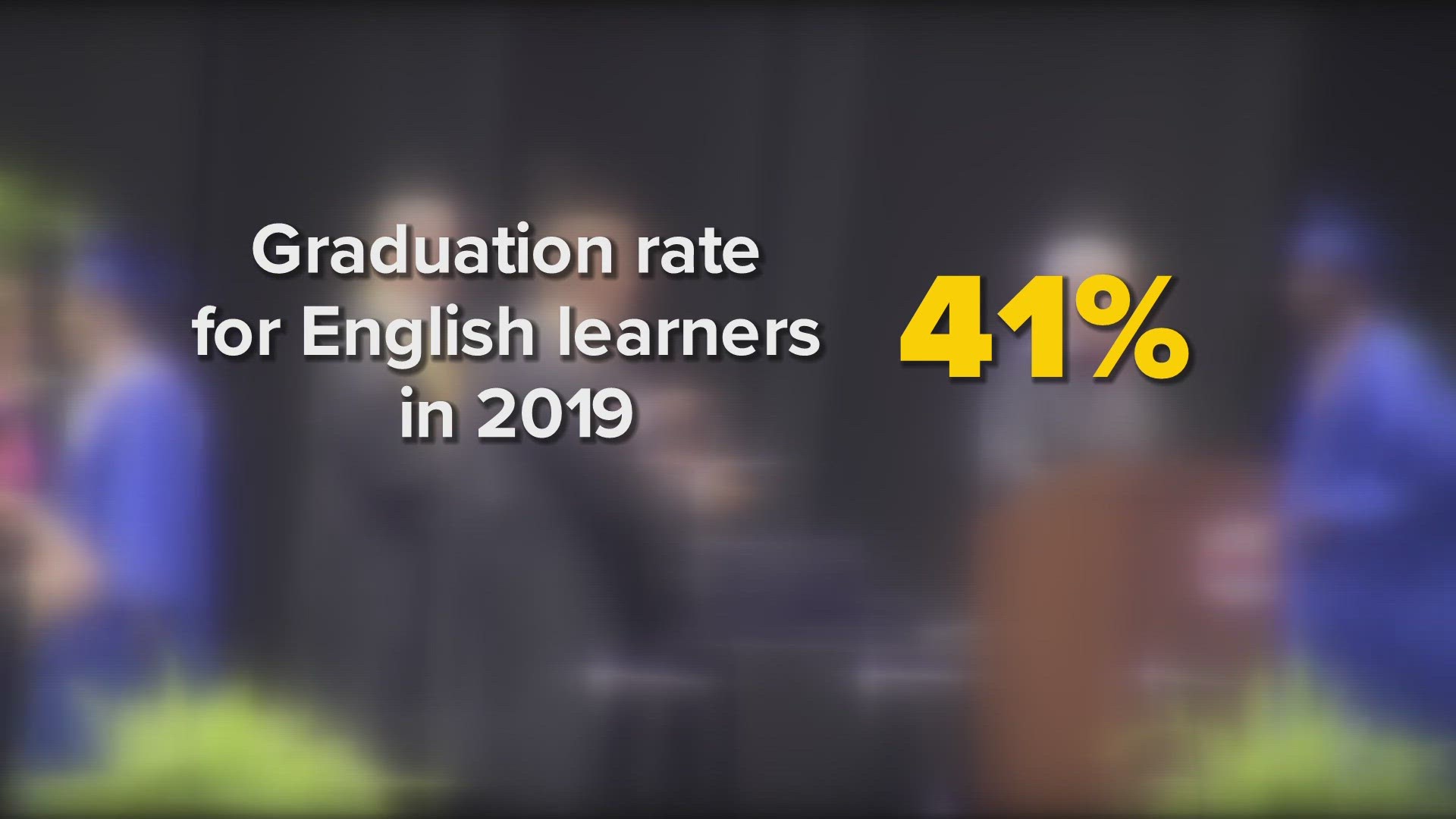NEW ORLEANS — Haga clic aquí para leer este artículo en español
A new policy will give high school seniors in Louisiana an alternate path to a diploma. It could help boost graduation rates for students who have long lagged behind, especially those who are not fluent in English and those who have chronic medical conditions.
Beginning in 3rd grade, all Louisiana students have to take the LEAP exam, a series of standardized tests in various subjects. Seniors must pass three of them in order to graduate: English I or English II, Algebra I or Geometry, and Biology or U.S. History/Civics.
Besides Algebra and Geometry, which are available in Spanish, the LEAP tests are only offered in English. Advocates believe that requirement is the primary reason non-fluent English speakers graduate at a much lower rate than students overall in Louisiana.
Emma Merrill directs Las Sierras Academy, a program for Orleans Parish students who have recently arrived in the U.S. She said in 2019, two of her students passed the LEAP exam, “and the rest of the kids could not graduate.” Only about 40% of English learners in Louisiana did that year compared to 80% of students overall. Then the Louisiana Board of Elementary and Secondary Education temporarily waived the LEAP requirement because of COVID-19. “100% of my kids graduated that year,” said Merrill.
English learners make up about 5% of Louisiana public school students overall. That number is much higher in some parishes, including Jefferson Parish, where 20% of the student body does not speak fluent English.
Merrill and NOLA Public School Educational Diagnostician Cheruba Chavez began advocating for an alternative to the LEAP graduation requirement. “It just was very obvious that this was something artificial, manmade,” said Chavez.
At the same time, Jonata Newton, MTSS Coordinator and former Special Education teacher in Orleans Parish, was fighting for the same thing. She saw how students with disabilities, including her own daughter who has sickle-cell anemia, missed out on tests and class material and then struggled to meet requirements like LEAP. “She is a member of the National Honor Society, she's high functioning, she doesn't have a cognitive disability,” Newton said of her daughter. “People just looked at it like, oh, she's supposed to pick up and catch up.” She joined with Merrill and Chavez and advocated before BESE.
The efforts paid off. In June, BESE approved a new appeals process for seniors to graduate. They will still have to take the LEAP exam, but if they do not pass one or more sections, they can put together a portfolio to show what they have learned in those subjects. They will also have to demonstrate employability by earning a TOPS Tech award, passing the ACT Workkeys Exam, or earning a certain certification, as well as fulfilling all other graduation requirements. The new policy can be viewed here.
Not everyone is happy about the change. In a statement, Attorney General and gubernatorial candidate Jeff Landry accused BESE of "lowering standards at our public schools" and said, "if BESE were allowing students to opt-out of these exams because they were succeeding -- with excellent grades, strong work ethic, and the ability to complete a special project related to their chosen profession -- that would be one thing.”
WWL-TV asked him to clarify the “special project” comment in relation to the portfolio students would be required to complete. He responded that "passing kids based on subjective ‘special’ projects after failing an objective examination, or passing kids who are not proficient in English, is not beneficial to our students or communities."
BESE is currently working with school districts to develop grading rubrics for the portfolios. Laura Roussell, Chief Academic Officer for Jefferson Parish Schools, said the goal will be to "ensure that we are not lowering the standard and that we are offering the same standard for a child who would have taken the LEAP assessment versus a child who is putting forth a portfolio." She also does not think there will be many students choosing the appeals process in the first place, since "this will be a part of (the district’s]) already existing checks and balances that our schools engage in when they're looking at graduation plans.”
The policy indicates schools should aim to have 3% or fewer of their graduates earning their diplomas through the appeals process. They will have to report how many did so each year and will face an audit if the number is above the goal.

